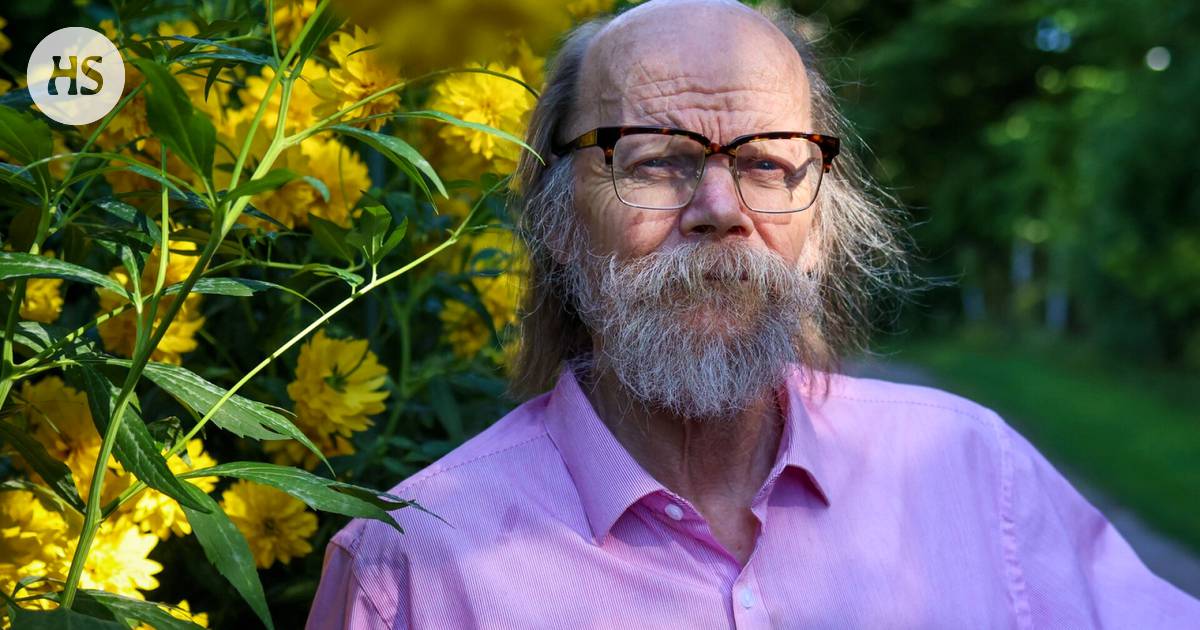Risto Ahti has published poems and translations and taught writing for seven decades.
Poet Risto Ahti is from Lahti, by birth and deeply. His father’s family has lived in the region since the 16th century, and for a long time the family owned the large Rekola house with its tilings on the outskirts of the current city center. The early landscapes of the future literary man were Kariniemi Harju and Pikku-Vesijärvi with their parks, harbor and ships.
“What was attractive about Lahti was that the city was growing, powerful and energetic”, describes Risto Ahti at home – no longer in Lahti, however, but in Helsinki’s Käpylä.
In his youth, Ahti was attached to nature, especially the flora, and was involved in athletics – while immersing himself in the worlds of literature. “I got to try a lot of things in my thesis, and my mother tongue teacher at high school said that you’re going to be a writer.”
In the late fifties, for example Eeva-Liisa Manner and SpongeBob Haavikko wrote their highest quality production, Ahti adds – referring to the good supply of his teenage years.
School year The young man spent 1961–62 as an exchange student in Chicago. It was an intense time.
“I got on well with my studies and the English language, and my girlfriend took me to all the forbidden places. There were the beginnings of the hippie movement, beat literature, Dave Brubeckin a jazz concert…”, Ahti lists the kindlings.
“I even got to the White House, where the president John F. Kennedy the fellows invited us.”
About lighters literature, poems proved to be the most powerful. At the age of 24, Ahti debuted Winter is an illusion – collection, and since then poetry has remained his innermost domain. Poems and translations of poems have been published in seven different decades.
Where does the appeal of poetry come from? “The most wonderful thing was and is that you come to an area where you don’t understand what’s going on. To sit and watch what happens. That there is a sentence that comes from oneself and lives.”
”
“There is a sentence that comes from oneself and lives.”
Ahti is a writer who looks analytically at the text. In his conception of poetry, he keeps sensations, feelings and intellect separate from each other. “Instead of saying ‘wonderful grape’, you have to separate that ‘grape’ from ‘wonderful’ and study them separately. When mixed together, they lose their authenticity.”
“Intellect, on the other hand, plays and twists, builds paradoxes, lies and annoys. Only when it begins to serve the senses and emotions does a new poet emerge, the only true witness.”
Ahti locates the importance of writing precisely in the living word – be it verses, aphorisms or prose. “It is something independently left behind, tangible.”
The fact that a person can start writing his own world requires the right kind of solitude. “That’s what Haavikko meant when he spoke of the ‘lonely emperor’, and the process requires detaching the private language from the social language of pleasing.”
Risto Ahti lives in Helsinki near Kumpula’s transplant garden, which he considers a wonderful place.
Writing as a teacher, Ahti finds her work absolutely meaningful. Over the decades, there have been enough people to teach – so much so that the Laikku library in the city of Tampere has three shelves of published works by his students!
Ahti used to compose Väinö Kirstinän and Veijo Meren with even a literary curriculum, but the Writers’ Association and similar bodies did not sufficiently commit to it. The project was cancelled.
“When teaching, you have to instill confidence in the meaning of literature. If I teach largely text-based, there is also a philosophy in it: the search for freedom and courage. The key is to anticipate where the other is going,” he formulates.
What has the teaching job given the teacher? “I could say that everything!”, Ahti enthuses. “I’ve been in contact with young writers, and I’ve read a lot of their texts up close. That, if anything, inspires.”
“I’m still teaching.”
-
Born in 1943 in Lahti.
-
Studied literature, education and English at the universities of Jyväskylä, Helsinki and Oulu.
-
Teacher in Suomussalmi and Lahti 1969–1984. Has taught since the 1980s at Orivesi College and many other places.
-
Freelance writer since 1992.
-
Published more than 20 works of poetry. Poems translated into more than 20 languages.
-
Radio poetry programs, magazine essays, reviews and articles.
-
Translated poems by William Blake, Kahlil Gibran and JL Runeberg into Finnish.
-
Founded the Lahti Poetry Marathon in 1982.
-
State Prize for Literature 1980 and 1985. Tampere City Literature Prize four times. Eino Leino Award 1994. Runeberg Award 2002. Pro Finlandia 2003. Writers’ Association Recognition Award 2012.
-
Artist professor 2004. Tampere University honorary doctorate 2018.
-
Lives in Helsinki, married to Ritva Hoka, three children, six grandchildren.
-
He turns 80 on Sunday, August 27.
